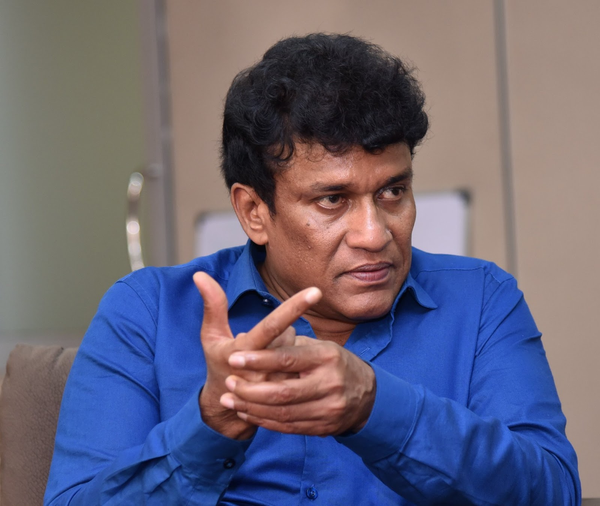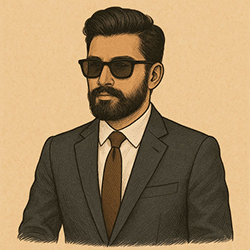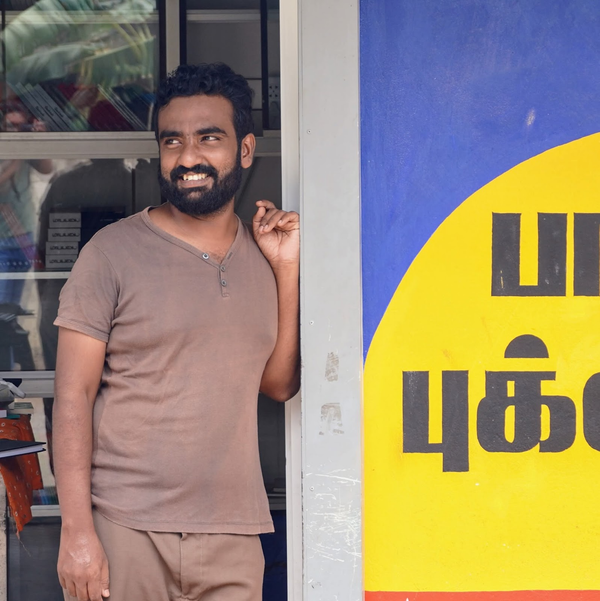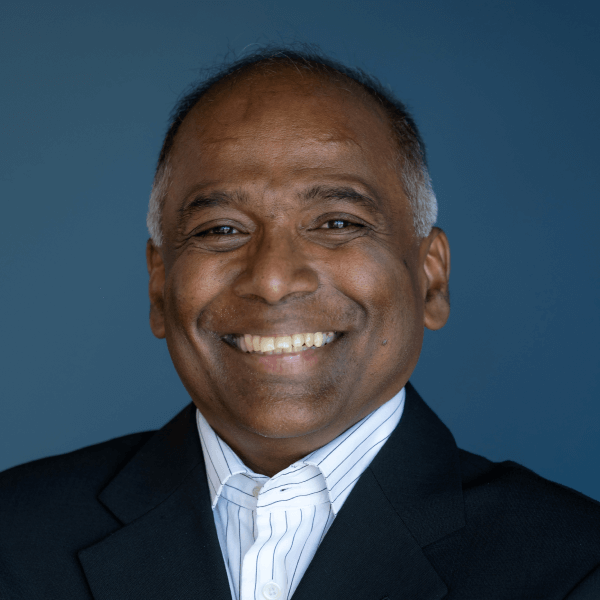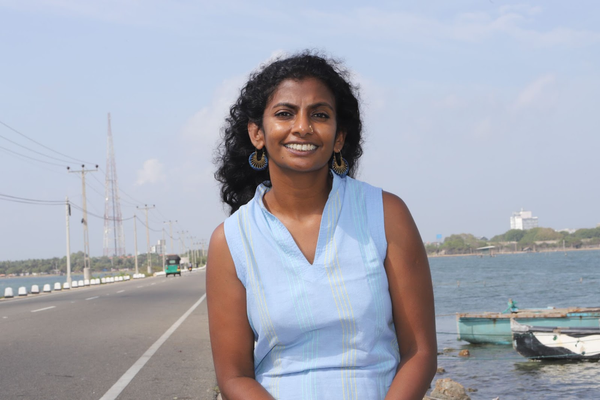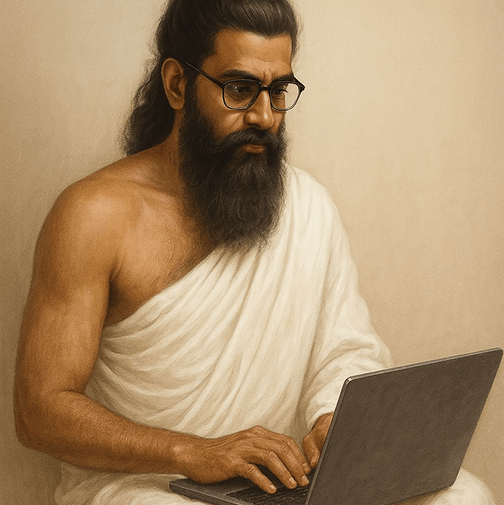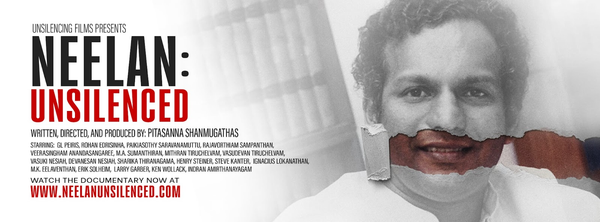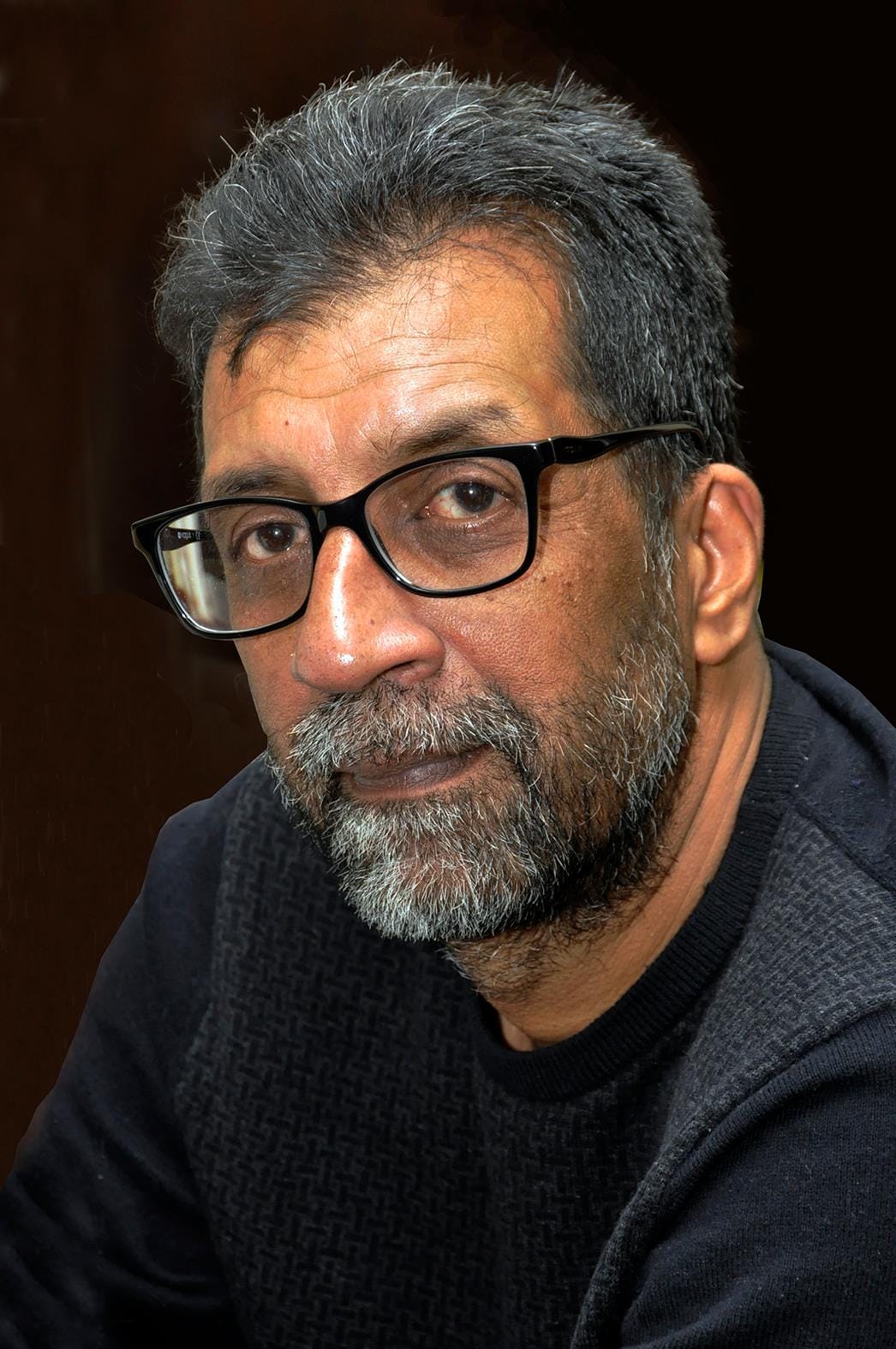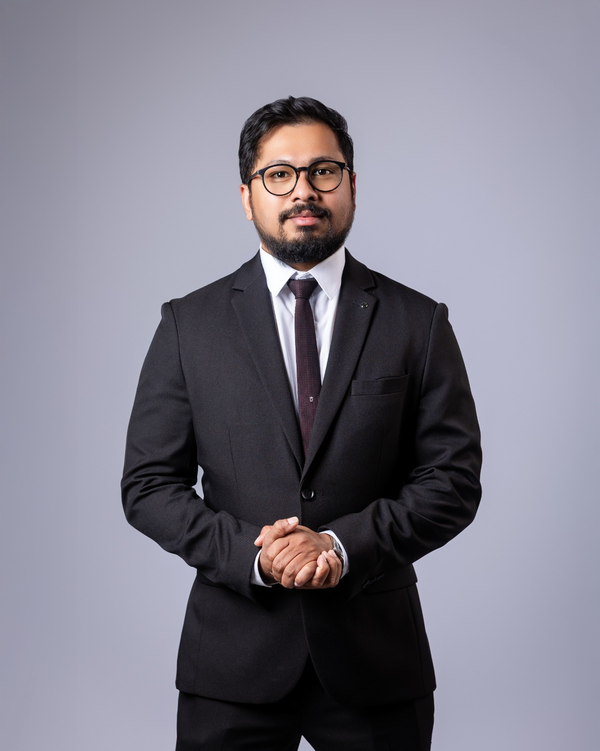To grasp the shifting currents of Sri Lanka’s politics, Jaffna Monitor sat down with Mano Ganesan—Member of Parliament and leader of the Democratic People’s Front (DPF) and the Tamil Progressive Alliance (TPA), both part of the Samagi Jana Balawegaya, the country’s main opposition. What follows is a no-holds-barred conversation with one of the most outspoken voices in Parliament.
How do you see the one-year performance of the NPP government?
Although it may still be too early to draw firm conclusions or make sweeping judgments, this government under Anura Kumara Dissanayake and the NPP came to power with a strong people’s mandate on the promise of “system change.” Naturally, one would expect to see signs of such change by now.
Unfortunately — and regretfully — I do not see any clear indications of a genuine system change taking place.
What I do see, however, is that the JVP, which loudly claimed it would transform the system, seems instead to be the one undergoing change itself.
Anura Kumara Dissanayake has been a close friend of yours for a long time. Over the years, you both took part in many political activities, both inside and outside Parliament. How do you view him as a person—before he became President and after?
He was once a party leader and an opposition figure who engaged in every kind of struggle. Now, although he holds the office of President, in reality, he is struggling within his own party.
In fact, the NPP/JVP resembles the Chinese Communist Party and Cambodia’s ruling Cambodian People’s Party far more than it does any social democratic party in Sri Lanka or elsewhere in Asia.
Therefore, although Anura Kumara Dissanayake is officially the President of Sri Lanka, in practice there exists a parallel ‘shadow president’—Mr. Tilvin Silva, the General Secretary of the JVP. I believe that answers your question.
So, do you agree there is a shadow president? If so, then who is really taking the decisions—the President or the shadow president?
Yes, there is a shadow president—it’s an open secret.
If you were to ask me who truly makes the key decisions of the government and the presidency, I would name the following individuals: Tilvin Silva, Anura Kumara Dissanayake, Bimal Rathnayake, Vijitha Herath, K.D. Lalkantha, Sunil Handunnetti, Nalinda Jayatissa, and Wasantha Samarasinghe.
This high command, in practice, runs the government and makes decisions at the presidential level. More than the official state apparatus, this committee is the true seat of power in Sri Lanka. Within the JVP—whether it is the Central Committee, the Politburo, or another organ—it is evident that a high-command committee exists, operating outside the formal structures of government. In reality, it is this body that makes the decisions of government. Crucially, no members from the wider NPP alliance—not even the Prime Minister—are part of it; it is composed solely of the JVP’s inner circle.
So do you think it is healthy for a democracy? The people elected the NPP government, not the JVP Central Committee. People did not give any mandate to the JVP Central Committee. They elected Anura Kumara Dissanayake in good faith. So do you think it is a healthy democracy when others, not the elected leader, are dictating the terms?
Every president or prime minister—the head of government—usually has a circle of confidantes forming an internal shadow high command. That is not unusual. But today, it is closely and exclusively tied to their party. This cannot be healthy.
As I noted earlier, the mandate secured by Anura Kumara Dissanayake in the presidential election is fundamentally different from those obtained by past presidents.
Every president before him led a functioning political party with clear mechanisms, structures, and limits. Their authority was exercised within the framework of the people’s mandate, given both to the party and to its leader.
But here the situation is markedly different. The NPP is publicly presented as the governing force, yet within it, the JVP stands as the rigid core. What we are witnessing is not a president guiding his party, but rather a party apparatus—opaque, unelected, and unaccountable—dictating terms that go well beyond the scope of the people’s mandate.
And that is precisely why this arrangement casts a deep shadow over the health of our democracy.
So do you think the JVP still functions like a militant organization? I don’t mean in terms of armed struggle or revolution, but in its functional style?
Militancy does not always mean carrying arms or waging armed struggles. Militancy is also a mindset—a psychology. And in that sense, yes, the JVP still carries a militant character. Their internal culture is rigid, their decision-making is highly centralized, and their outlook leaves very little room for open discussion, debate, or democratic space. That, in essence, is a form of militancy. So, while they may no longer be militant in the physical sense, their psychology and functional style remain undeniably militant.
Then how do you define JVP? I don’t think they are communist in the real sense either.
I would define them as a militant party without arms—a rigid party without democracy, yet one that has come to power through the democratic process.
They took full advantage of the Aragalaya movement. The uprising that shook Sri Lanka in 2022 was not a JVP creation; they were never the sole owners of it. The Aragalaya was a spontaneous protest of the people, driven mostly by youth. But tactically, the JVP was able to capitalize on it, precisely because of the discipline and rigidity of their party structure.
No other party—whether the SJB, UNP, or SLFP—was able to channel the raw anger of the Aragalaya into political power. The JVP did.
The true owners of the Aragalaya struggle have not formed a political party. The ordinary people—especially the youth who risked everything—are today left disappointed and disillusioned. They are neither fully with the JVP, nor the NPP, nor with any other established political party. I still meet them, scattered across different corners of Sri Lanka’s political arena, carrying the feeling that their struggle has been hijacked.
You said that the NPP is changing. In what way are they changing? What do you mean by that?
When I say they are changing, I am referring to the behavior of the party. In this era, democracy must be the foundation of any political party. We have long moved past the days of kingdoms, feudal systems, or even the old petty-bourgeois frameworks. In 2025, when technology has reshaped nearly every aspect of our lives, freedom of speech must remain the cornerstone of democratic principles—and democracy itself must remain the cornerstone of any political party.
But I do not see that spirit within the JVP. Even its own cadres, in my view, are brainwashed. They live under a myth, trained to be instruments of the party rather than independent human beings with minds, souls, and bodies. This is why it is difficult to have open discussions with them: they often fail to stand by logic and reason.
Let me contrast this with my own experience. In my party, the Democratic People’s Front, we have clear principles, policies, and theories. Yet within that framework, we allow space for discussions, debates, and contradictions. That is the very essence of a functioning political party. Beyond that, we are part of the Tamil Progressive Alliance (TPA)—an alliance of three parties—where naturally there are even more contradictions and differences. And beyond that, the TPA itself belongs to the broader SJB alliance, where debates and differences are common. But I see this as a sign of progress. A progressive political culture must welcome discussion, dialogue, and the clash of ideas, because only then can we open our minds and hearts to new developments, new proposals, and new possibilities.
That openness does not exist within the JVP. Yet I said they are changing because, as the government, they are now engaging in practices they once vigorously rejected. For instance, they are now dealing with the market economy and exploring investment opportunities—things they historically condemned.
They frequently use the phrase “the curse of 76 years,” referring to the post-independence period. But if there truly is such a curse, then the JVP must take responsibility for at least 51% of it. For decades, they blocked every possible solution—whether economic, political, or constitutional.
Take the national question. Sri Lanka is, in my firm belief, a multi-ethnic, multi-linguistic country. It is not an exclusively Sinhala-Buddhist country, even though our Constitution gives Buddhism the foremost place. I respect the Constitution, but I also believe I have the right to advocate amendments toward secularism. Non-Sinhala-Buddhist communities have every right to claim ownership of this country. That ownership means sharing governance in the regions where they live in large numbers. In political science, this is called power-sharing, or devolution.
From its very birth, the JVP has opposed power-sharing. The landmark 13th Amendment, which gave birth to Provincial Councils, remains part of our Constitution. But the JVP opposed it violently during the late 1980s. Their resistance cost the lives of 50,000 to 60,000 of their own cadres in the South. Even today, their position on devolution and the 13th Amendment remains inconsistent. Tilvin Silva says one thing, Anura Kumara Dissanayake says another, and Bimal Rathnayake says something else.
I believe this inconsistency is deliberate—a tactic to keep people guessing and to avoid giving clear answers on hard-hitting questions like power-sharing, democracy, and devolution.
That, in essence, is what I mean when I say the NPP is changing. But the change is partial, tactical, and still far from embracing true democratic values.
There is still an accusation that, despite rebranding as the NPP, the JVP remains essentially a Sinhala nationalist party. Do you share that view?
Yes, I do. The NPP presents itself as a multi-ethnic, multi-religious party, but that image is a cover for its actual character.
Take the concerns of the Tamil people—both the Eelam Tamils of the North and East and the Malayaha Tamils. Their issues are very clear. First, the holding of Provincial Council elections. Second, the resumption of the constitutional reform process that began under the “Good Governance” administration of 2015–2019.
I was a member of the Steering Committee of that process, alongside leaders such as Mr. Sampanthan, Mr. Sumanthiran, Mr. Rauff Hakeem, and others. Anura Kumara Dissanayake himself was also part of it. In fact, he and I sat side by side through those long deliberations. After two years of discussion, we produced an Interim Report—a serious, substantive document. Before the last election, Anura Kumara personally assured me, as well as other Tamil leaders, that an NPP government would resume the process from where it had been suspended. Their own manifesto referred to this. Yet one year has passed, and there is still no sign of progress.
The same is true for Provincial Council elections. The legal obstacle can be removed with a simple amendment. My colleague Mr. Sumanthiran even submitted a bill to this effect. If the government wished, it could easily adopt it as government business and conduct elections within a month. But they have not done so.
Now consider another issue: political prisoners. Until recently, no Sinhala-majority party acknowledged Tamil detainees under the PTA as political prisoners. To its credit, the JVP in its manifesto did recognize them as such and promised to release them if elected. Today, only twelve such prisoners remain. Yet one year into this government, there is still no sign of release—whether through presidential pardon or bail. Nothing.
The same duplicity applies to the PTA itself. The JVP promised outright repeal. This law, enacted in 1979, was designed to target Tamil militancy and, for decades, has been used overwhelmingly against Tamils. For forty years, we resisted it, while the JVP remained largely silent. Only when the Aragalaya erupted in 2022—and the PTA was used against Sinhala youth—did the JVP suddenly discover its opposition. I know this firsthand: I personally participated in more than ten Aragalaya-related discussions in Colombo in the post-Aragalaya period. In every one of them, the PTA came up. That was the moment the JVP seized the anti-PTA flag, promising repeal with no replacement. They said that the current Public Security Act would address the security concerns. But today, they are preparing to introduce another, rebranded law in its place. That is nothing short of betrayal.
The same pattern continues with land in the North and East. During the war, the military occupied private land for security reasons. One may disagree, but in wartime, there was a certain logic to it. Today, there is no war. Yet the military continues to occupy vast tracts of land. More than 50% of the Sri Lankan Army is still stationed in the North and East. Not only that, the military is engaged in farming, fishing, and even running businesses on these lands. That is not the function of an army—it is the behavior of an occupying force. These lands must be released.
When we were part of the ‘Good Governance’ administration, we fought hard on these issues. We secured important gains—such as the right of families to memorialize their war dead, steps toward the release of political prisoners, the establishment of the Office of Missing Persons (OMP), recognition of the national anthem in Tamil, significant land releases, and the initiation of a constitutional reform process. We laid the groundwork for further progress. By contrast, this government, which came to power promising ‘system change,’ has failed to match our record in any meaningful way.
In respect of the Malaiyaha Tamils, AKD continues to deliver only sympathy speeches and nothing more. The JVP released a document in 2023, calling it the Hatton Declaration. They promised to provide land for housing, distribute livelihood lands from the large uncultivated areas in the plantations, ensure an estate worker daily wage of over LKR 2,000, and more. Yet nothing has materialized, nor is there any sign of such progress. What’s more, they are not even making proper use of the 10,000 units of the Indian housing grant scheme, which we, the TPA, obtained from the Government of India.
Do you say that the NPP government, is not giving any positive indications to the Tamils in particular and Srilankans in general ?
In politics, the first year is the honeymoon period. That is when a government enjoys maximum popular support and has the greatest opportunity to implement bold reforms. If ever there was a government with a mandate for transformation, it was this one. Yet they have squandered that chance.
History offers a sharp contrast. J.R. Jayewardene came to power in 1977 with a massive mandate—comparable to what the NPP enjoys today. Whether one agrees with him or not, he used that mandate for sweeping changes: he created the Executive Presidency, changed the electoral system, opened Sri Lanka to a market economy, and launched the Mahaweli Development Project, declaring the shortest possible completion period, transforming irrigation, agriculture, and energy. He introduced television and liberalized the economy in ways no one had imagined before. That was real system change.
Now, in Anura Kumara’s own terminology, JR was a “bourgeois” leader—or Yankee Dickie. If a so-called bourgeois leader could deliver that much transformation, surely a self-declared revolutionary like Anura Kumara should have done far more. Yet one year has passed—and what have they achieved? Where is the system change they promised? Where are even the first signs of it?
You have referred to Tamil detainees under the PTA as political prisoners. But let me put a counterpoint. Suppose someone raises the case of Aanantha Suthakar, who was convicted for planting the 2008 Piliyandala bus bomb that killed around 30 civilians, including children. How can such individuals be classified as political prisoners?
And further, why didn’t the “Good Governance” administration, of which you were a part, release all political prisoners at once when you were in power?
Let me begin with the second part of your question. When we came to power in 2015, there were around 150 Tamil prisoners detained under the PTA. By the time we left the office, that number had been reduced significantly. I do not claim full credit for myself or my government; civil society organizations, lawyers, and human rights activists played an enormous role. But without the support and approval of the government, none of it would have been possible.
I can recall very well—during our time, we held regular meetings with the Attorney General, the IGP, the Minister of Defence, the Minister of Law and Order, and even the President himself on this issue. We pressed them not to oppose bail applications. You see, the judiciary acts on the basis of the charge sheets and reports prepared by the CID and the Attorney General’s Department. If the AG’s Department does not object to bail, courts will grant it. That was the pathway through which many prisoners were released—either discharged or bailed out. We did our best. No one can fairly say we were idle on this matter.
Now, regarding your first part of the question—about calling them political prisoners. Why ask me alone? You should also ask President Anura Kumara Dissanayake. It was his party, the JVP/NPP, that in their manifesto explicitly described Tamil detainees under the PTA as political prisoners.
For me, terrorism is terrorism—whether it comes from the LTTE, the JVP, or even the state itself. I am not naïve; I understand political science. I recognize the distinctions between state terrorism, non-state terrorism, and terrorism carried out under the guise of liberation struggles.
If the LTTE is to be condemned for terrorism, the JVP must also be condemned. Twice in post-independence Sri Lanka, they took up arms against democratically elected governments. They killed politicians, intellectuals, police, army officers, and ordinary citizens. Let us not forget—it was the JVP, not the Tamil youth, who first launched an armed insurrection in this country in 1971. The JVP attacked security installations at the Kandy Dalada Maligawa to loot the sacred gold safe. They threw bombs at government group meetings and even inside Parliament, aiming to murder President Jayewardene, Prime Minister Premadasa, and National Security Minister Athulathmudali—ultimately ending up killing an MP.
So the JVP cannot today project themselves as saints while dismissing others as terrorists. During the war, yes, the LTTE planted bombs in the South—tragic acts of terrorism that killed innocent Sinhalese civilians. The armed forces also bombed Tamil villages, schools, and places of worship, killing thousands of innocent civilians in the North and East.
Soldiers and LTTE fighters who died were combatants; they came prepared to fight and to die. But the tragedy lies with the civilians—innocent Sinhalese in the South, innocent Tamils in the North, and innocent Muslims caught in between.
Some Muslim groups, in fact, were armed and trained by sections of military intelligence in the East, and they too committed massacres. Those state-sponsored activities created long-term consequences, contributing in part to the radicalization that eventually led to the Easter bombings.
I grieve for all the innocent lives—Tamil, Sinhalese, and Muslim—that were lost. But we cannot live forever in the past. We must learn from it, acknowledge the mistakes of all sides, and move forward. That is the responsibility of a democratic and accountable politician, and that is what I am doing now by speaking frankly.
You recently said that Ranil Wickremesinghe and Sajith Premadasa are like father and son, and that they should work together. Why didn’t you advocate for this unity during the last election? If you had, perhaps Anura Kumara Dissanayake would not have become President in the first place?
Who said I didn’t? How do you know? I tried personally. My good friend Rauff Hakeem and I both took on that mission.
I remember it very clearly. Immediately after Ranil Wickremesinghe was sworn in as President, at the party leaders’ meeting, he invited me to join his government. Two days later, Hakeem and I met him again at the Presidential Secretariat. We told him we were not prepared to join, as we were uncomfortable with some of the others in his cabinet. However, we urged Ranil and Sajith to work together. To Ranil’s credit, he agreed to form a three-member committee on his side and asked us to convey the same to Sajith, with both of us acting as mediators to help bridge the differences.
When we carried this proposal to Sajith, he dismissed it outright. He was convinced the tide was on his side and that the next presidential election would carry him to power. In his view, joining Ranil would only damage his image.
When that effort collapsed, I still continued. About six months before the presidential election, I met Ranil three times at his residence on Paget Road—usually after 10 p.m. I almost begged him to dissolve Parliament and hold parliamentary elections first. He told me, “Even Basil Rajapaksa is asking me to do the same.” I replied, “Basil’s reasons may be different, but mine are not.”
I argued: if Sajith’s SJB won 90 seats and the UNP secured 30, Ranil could remain President for six months while Sajith served as Prime Minister. Ranil rejected the idea. He asked me directly, “Who will be the presidential candidate after six months?” I told him, “That can be decided then.” But he refused to listen.
And so, by failing to unite, both Ranil Wickremesinghe and Sajith Premadasa divided the vote and paved the way for Anura Kumara Dissanayake and the NPP. In the election, Sajith secured 4.4 million votes and Ranil 2.2 million—together, more than 6.6 million. Anura’s tally was a full one million less than that combined total. The truth is obvious: unity could have prevented this outcome.
For this debacle, both Ranil Wickremesinghe and Sajith Premadasa must take joint responsibility—for their personal downfall, for the plight of their parties, and for the crisis the country finds itself in today. I say this loudly and clearly. I don’t care who it offends. Speaking the truth is my duty.
So, according to your understanding, what is the actual problem between Sajith and Ranil?
That you must ask them. Why are you asking me?
How do you see the arrest of Ranil Wickremesinghe?
It is clearly political intimidation.
This government tries to smear everyone who supported Ranil Wickremesinghe, as if we are all thieves. Once “BR” meant Basil Rajapaksa; now it means Bimal Rathnayake, who delights in branding us “this chain of thieves.” I have endured that insult long enough. One day in Parliament, I will stand up and publicly call him out.
When this government came to power, they promised to publish lists of corruption. One was the so-called “bar license list.” I have been in Parliament for decades, yet I have never obtained a bar license. Then they promised a list of politicians owning petrol stations—I have never had one. They said they would release a list of MPs who benefited from the Presidential Fund—I never took a single cent.
An exclusive housing scheme for MPs: many booked state-built houses at heavily discounted prices. Some even used false addresses to claim compensation for houses damaged during the Aragalaya—or for houses not damaged at all. I never did such things. Under Ranil’s government, decentralized development funds were offered to MPs in hundreds of millions. I was offered such funds, but I refused, because I believed it was unethical.
Even as a cabinet minister, I never took a government bungalow to which I was entitled. I continued to live in my own house—the very same house where you are interviewing me now. So on what grounds can this new ‘BR’ lump me together with others and call us thieves?
Now, let me come to Ranil’s case. Ranil was the President of this country. Let me ask Anura Kumara Dissanayake: when does a President stop being President? Is it only from 9 to 5? No. The President is President 24/7, wherever he goes. When he transits through London, do they expect him to take an Uber by himself? When a President travels, security teams go in advance, they decide where he stays, and they decide how he travels.
So, just because he is the President, can he not attend his wife’s convocation? Are these people suggesting that when someone becomes President, he must ‘divorce’ his wife for five years and remarry afterward? These are basic matters of protocol. In fact, the university officially invited him to the convocation, and the mayor of that city even expressed regret over what happened to him.
The proper procedure was simple: if the current President’s Secretary, Kumanayake, thought the expenses were excessive, he should have written to Ranil’s Secretary, asking for reimbursement or surcharge. Ranil could have paid, and if he refused, they could have filed a case. But an arrest? No—that is wrong.
If Ranil Wickremesinghe is to be arrested, let it be for Batalanda or the Central Bank bond scam—serious issues linked to corruption and human rights. If the government has evidence, they can arrest him for those. But I see no sign that this government is preparing such cases. Instead, they pursue this matter of his wife’s convocation, which does not justify an arrest. It only proves political intimidation.
There will be a ruling in October on Ranil’s case, and the truth will come out. Deep down, the NPP government knows it has blundered. And that is why they are trying to silence those of us who speak the truth—by throwing us all into one basket and calling us thieves. But that tactic will not work forever.
What is your opinion about former presidents being forced out of their official residence?
Mahinda Rajapaksa was provided with the opportunity to spend an excessive amount—around Rs. 500 million—on modernizing his official residence. That is not acceptable, especially during a time of national crisis.
However, the principle is this: a retired President is entitled to an official residence, security, and certain facilities. That is the practice in India, in the United States, and in other democracies as well.
Even President Anura Kumara Dissanayake should have a proper residence. I am told he lives in a small room at his party office in Pelawatte. I do not agree with that. The President of a country must have a proper official bungalow, a good bedroom, proper food, proper security, good vehicles, and capable secretaries—so that he can devote 100% of his energy to his presidential duties. That is what the people elected him for. I do not believe he can have proper rest or facilities in a party office.
Simplicity is one thing; perks are another; privileges are another. To show yourself as ‘simple,’ you don’t need to conduct yourself at a cheap level by cutting the necessary privileges. That will only deter you from giving your best to the office.
Today, there are nearly 35 houses in Colombo 7, built for ministers, lying idle without maintenance because NPP ministers are not allowed to live there. These are prime properties, but today they look like haunted houses. When the government changes, new ministers may hesitate to live in them unless they first perform religious ceremonies to chase away the ‘bad spirits.’ (laughs) The gardens are overgrown, and the houses are deteriorating.
In fact, a future government should file a case against this NPP government and President AKD for the misuse of state property. Leaving valuable residences abandoned and unmaintained is also a form of corruption. Ironically, a year ago, the NPP government said these houses would be rented out to the private sector, to diplomatic missions, or to hotels. But in reality, nobody will take them—not at such high rents, and certainly not at a loss.
So yes, in the future, the NPP government could be charged with causing damage and loss to state property—because wasting and abandoning state property is also misuse.
India offered a $65 million grant—not a loan—to develop the KKS harbor. But this government has refused it. Was this because of their anti-Indian position or due to a racist attitude of not wanting to develop harbors or airports in Jaffna?
It is a toxic combination of both—their deep-seated anti-Indian bias, which runs in their blood, and their chauvinism against Tamils in the North.
Look at the facts. Nearly 5 million people travel annually between India and Sri Lanka, the vast majority by air. This alone makes it crystal clear that Sri Lanka needs proper sea routes—passenger shipping lines linking KKS to Nagapattinam, Mannar to Rameswaram, and Colombo to Tuticorin. Such routes would not only strengthen people-to-people connectivity but also unleash enormous economic opportunities. Out of those 5 million travelers, around 3 million are Indians. The majority of Sri Lanka’s tourists come from India. Expanding maritime links is common sense. It will support tourism here even further. The Buddhist vandhanawa and Hindu yathirai—the religious pilgrimages between our two nations—will flourish.
Yet, foolishly, Minister Bimal Rathnayake opposes it. Why? Because a fully developed KKS harbor would transform the Northern economy. And that is precisely what he and the NPP government do not want to see. Their agenda is to keep the Tamils of the North economically dependent on the South—and to block India from establishing direct links with the North.
The same attitude applies to Palaly Airport, a project we initiated under our government. This government has deliberately stalled it. That alone proves the point: they are not only anti-Indian, they are also anti-Tamil.
Now, Bimal Rathnayake says the KKS harbor is not economically viable. On what grounds? Where is the survey? Who conducted it—his party henchmen? I challenge him openly: if there is a credible, independent survey proving KKS is not viable, then table it in Parliament. Until then, these are nothing but lies and excuses.
My message to the Tamil youth of the North and East is this: don’t be deceived by the sugar-coated speeches of the NPP. Behind the mask, they remain what they have always been—chauvinists who do not want the North and East to stand on their own feet.


